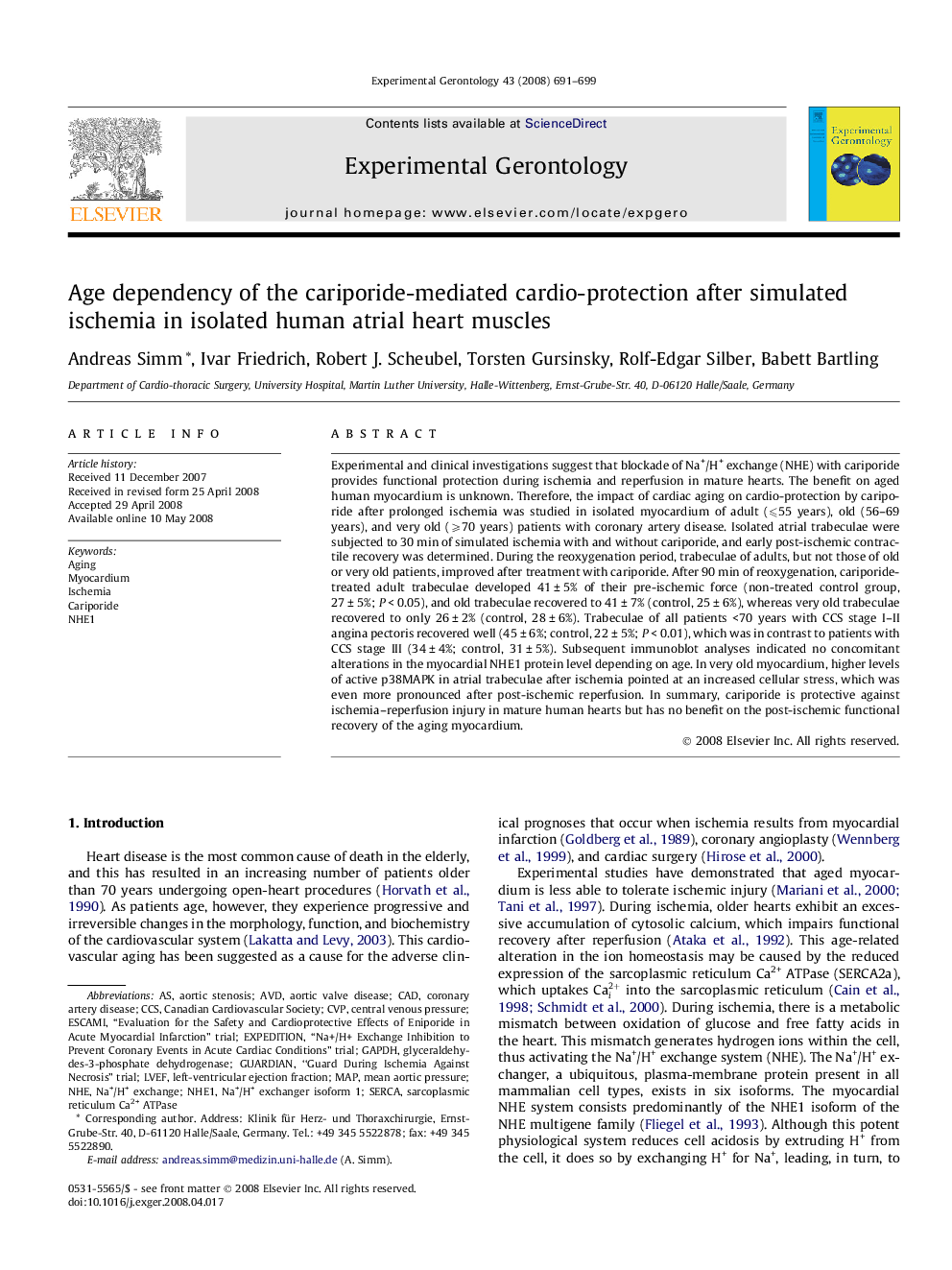| Article ID | Journal | Published Year | Pages | File Type |
|---|---|---|---|---|
| 1907480 | Experimental Gerontology | 2008 | 9 Pages |
Abstract
Experimental and clinical investigations suggest that blockade of Na+/H+ exchange (NHE) with cariporide provides functional protection during ischemia and reperfusion in mature hearts. The benefit on aged human myocardium is unknown. Therefore, the impact of cardiac aging on cardio-protection by cariporide after prolonged ischemia was studied in isolated myocardium of adult (⩽55 years), old (56-69 years), and very old (⩾70 years) patients with coronary artery disease. Isolated atrial trabeculae were subjected to 30 min of simulated ischemia with and without cariporide, and early post-ischemic contractile recovery was determined. During the reoxygenation period, trabeculae of adults, but not those of old or very old patients, improved after treatment with cariporide. After 90 min of reoxygenation, cariporide-treated adult trabeculae developed 41 ± 5% of their pre-ischemic force (non-treated control group, 27 ± 5%; P < 0.05), and old trabeculae recovered to 41 ± 7% (control, 25 ± 6%), whereas very old trabeculae recovered to only 26 ± 2% (control, 28 ± 6%). Trabeculae of all patients <70 years with CCS stage I-II angina pectoris recovered well (45 ± 6%; control, 22 ± 5%; P < 0.01), which was in contrast to patients with CCS stage III (34 ± 4%; control, 31 ± 5%). Subsequent immunoblot analyses indicated no concomitant alterations in the myocardial NHE1 protein level depending on age. In very old myocardium, higher levels of active p38MAPK in atrial trabeculae after ischemia pointed at an increased cellular stress, which was even more pronounced after post-ischemic reperfusion. In summary, cariporide is protective against ischemia-reperfusion injury in mature human hearts but has no benefit on the post-ischemic functional recovery of the aging myocardium.
Keywords
Related Topics
Life Sciences
Biochemistry, Genetics and Molecular Biology
Ageing
Authors
Andreas Simm, Ivar Friedrich, Robert J. Scheubel, Torsten Gursinsky, Rolf-Edgar Silber, Babett Bartling,
